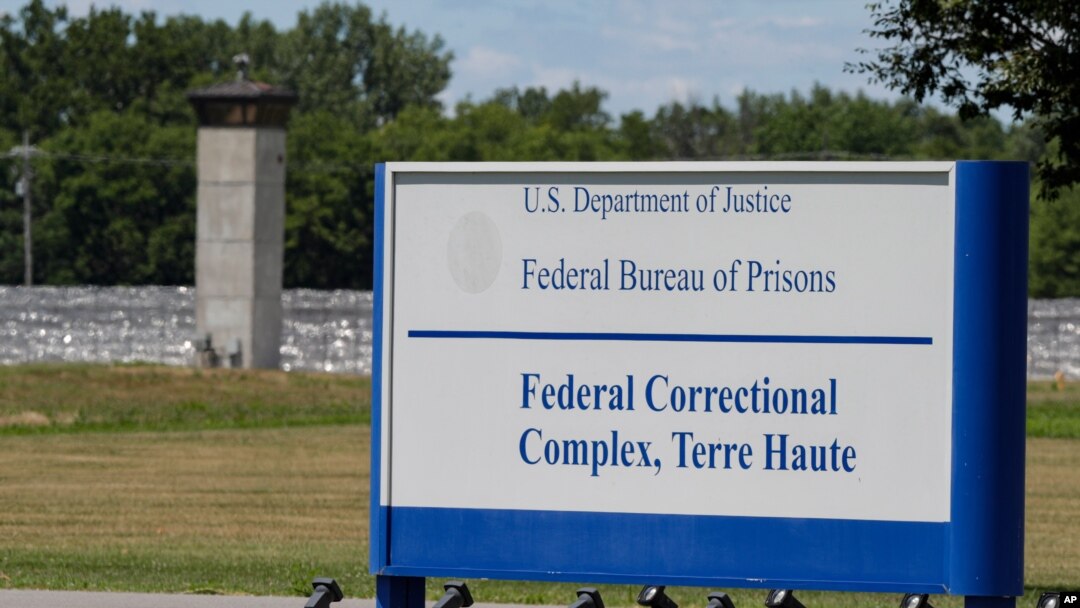The U.S. government has carried out its first execution in 17 years after the Supreme Court ruled 5-4 in an early Tuesday decision to dismiss a lower court’s injunction on three executions scheduled for this week and another set for next month.
Daniel Lewis Lee was put to death with a dose of the powerful sedative pentobarbital at a federal prison in Indiana hours after the court released its ruling.
U.S. Attorney General William Barr said Lee was “a member of a white supremacist organization” who in 1996 “brutally murdered William Frederick Mueller and Nancy Ann Mueller, along with her eight-year-old daughter, Sarah Elizabeth Powell. After robbing and shooting them with a stun gun, Lee duct-taped plastic bags around their heads, weighed down each victim with rocks, and drowned the family in (an) Illinois bayou.”
The top U.S. law enforcement official said Lee “finally faced the justice he deserved. The American people have made the considered choice to permit capital punishment for the most egregious federal crimes, and justice was done today in implementing the sentence for Lee’s horrific offenses.”
Lee was originally due to be executed Monday, but hours before that happened a federal judge issued a preliminary injunction on the grounds that courts should have more time to review whether the method of execution violates constitutional protections against cruel and unusual punishment.
Lawyers for the four men argued that pentobarbital could cause a type of respiratory distress with the sensation of drowning or suffocating.
The Supreme Court majority rejected that argument, saying the drug has been adopted by individual states that carry out their own executions and that more than 100 people have been put to death that way “without incident.”
“The Government has produced competing expert testimony of its own, indicating that any pulmonary edema occurs only after the prisoner has died or been rendered fully insensate,” the majority wrote. “The plaintiffs in this case have not made the showing required to justify last-minute intervention by a Federal Court.”
Justice Sonia Sotomayor, joined by Justice Ruth Bader Ginsburg and Justice Elena Kagan, said in a dissenting opinion that the majority had accepted the government’s “artificial claim of urgency” and rushed the review process.
“Today’s decision illustrates just how grave the consequences of such accelerated decision making can be,” Kagan said. “The Court forever deprives respondents of their ability to press a constitutional challenge to their lethal injections, and pre-vents lower courts from reviewing that challenge.”
Justice Stephen Breyer, also joined by Ginsburg, suggested in his dissent that the court may need to examine the constitutionality of the death penalty itself.
The execution of Wesley Ira Purkey is scheduled for Wednesday, followed by the execution of Dustin Lee Honken on Friday.
The American Civil Liberties Union lost a lawsuit to delay Purkey’s execution on grounds that the health of a Buddhist priest who had ministered to him for a decade and is religiously obligated to attend the execution would be endangered due to the COVID-19 pandemic.
Rev. Seigen Hartkemeyer said, “It is a discouraging day in the U.S. legal system. I am far from the only person who will risk my life if I attend Wes’s execution tomorrow. The fact that so many people will risk their health so the government can kill a man should give us all pause.”
Keith Dwayne Nelson is scheduled to be put to death Aug. 28.
Before Tuesday, the federal government had executed three people since reinstating the death penalty in 1988, with the last happening in 2003.


